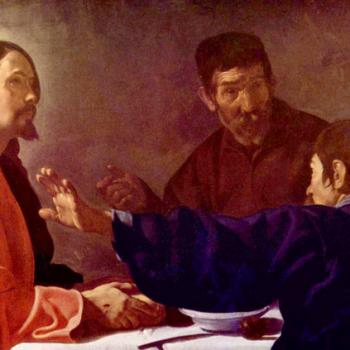But here I’m reminded of some insightful words of my mother: rape isn’t about sex, it’s about power.
But don’t take my word for it. There’s this classic exchange in The Shawshank Redemption:
https://youtu.be/BOzKIg_6AJMAndy Dufresne: I have no enemies here.
Red: Yeah? Wait a while. Word gets around. The Sisters have taken quite a likin’ to you. Especially Boggs.
Andy Dufresne: I don’t suppose it would help if I told them that I’m not homosexual.
Red: Neither are they. You have to be human first. They don’t qualify.
Rape is about power and domination.
Sex can be an expression of power and domination. In the ancient world people were often quite explicit about this. To be the “penetrator” was an expression of dominance, of superiority, of being higher up the pecking order.
The men of Sodom get enraged when Lot tries to dissuade them: “This foreigner thinks he can be judge over us!” The whole scene is about power and subjugation. It’s not a story about hearts longing for something that they see as beautiful and desirable in other men.
Coherence
This is not a revisionist reading of Genesis 18-19, it’s actually just a reading that lends coherence to the entire story.
The fact that a cry is rising up to God against Sodom indicates that there are people on the wrong end of power and oppression. The men’s attempted attack on the divine visitors is not some unrelated expression of Sodom’s depravity, as though people who previously were oppression their own have now decided that they really love having sexual relations with men.
Instead, it places Lot and the visitors in the same place as the others whose voices have reached God: they, too, cry out against the people of Sodom. They, too, are attempted victims of a dominating abuse of power.
There is actually quite a bit for us to learn from this story. It echoes a pre-flood assessment that what is wrong with humanity is violence. It can actually point us toward the sin that has the single greatest power to destroy people inside or outside the church: destructive deployment of power.
And in doing so it can also point us more clearly to the gospel: the salvation that comes to us through a Messiah who refuses to grasp after power by worldly or spiritually manipulative means, receiving what is given to him from a heavenly parent, and being willing to be killed by penetration for the sake of those he came to save.
We might find in Jesus’ refusal to dominate, his willingness to submit, the missing climax of Abraham’s intercession: “Won’t you save the people, save humanity, if you find not just ten righteous, but only one?”
“Yes, I’ll save them all for the sake of one.”
Image: “Sodom and Gomorrah” from the Nuremberg Chronicle by Hartmann Schedel, 1493. Public domain.












